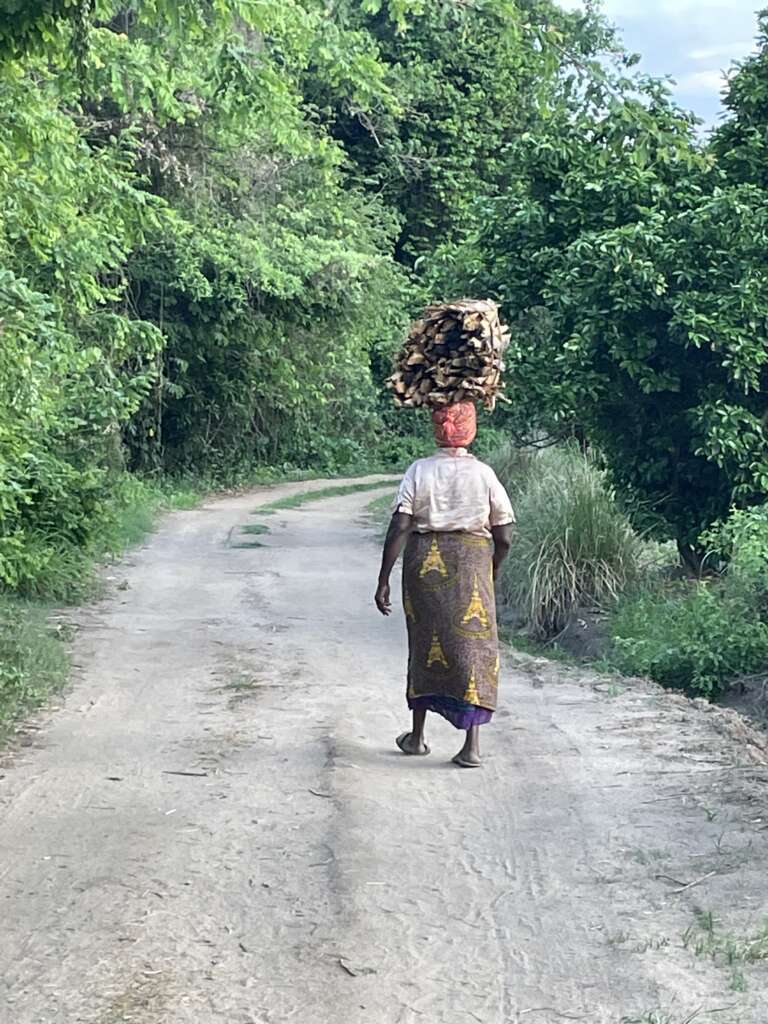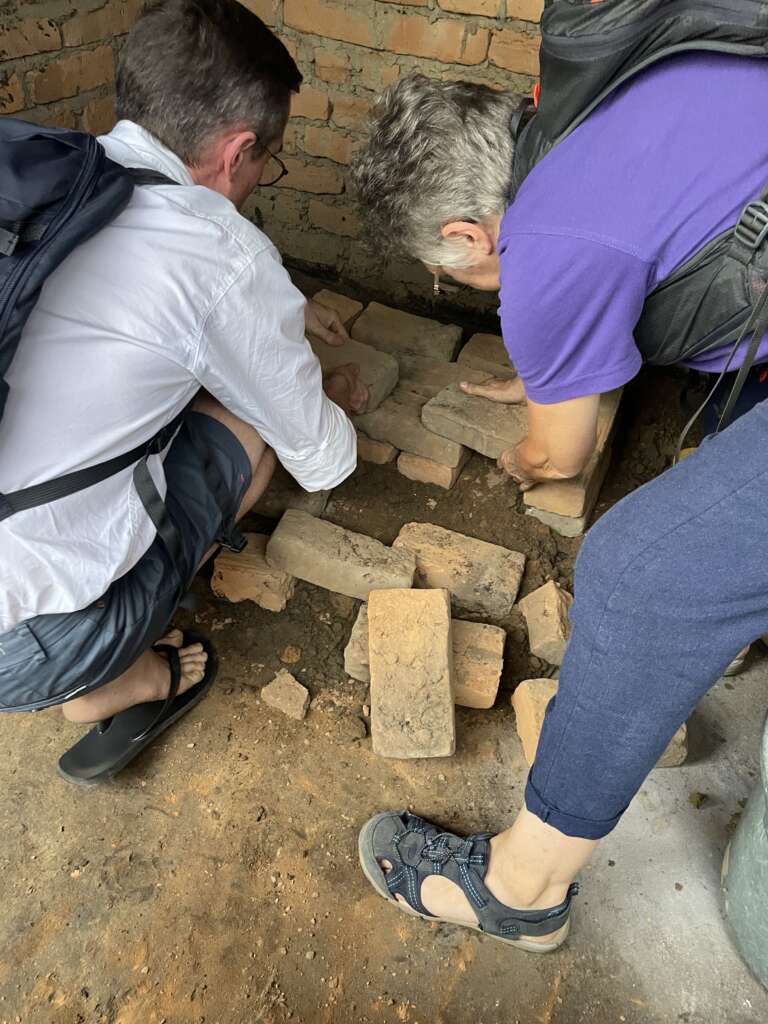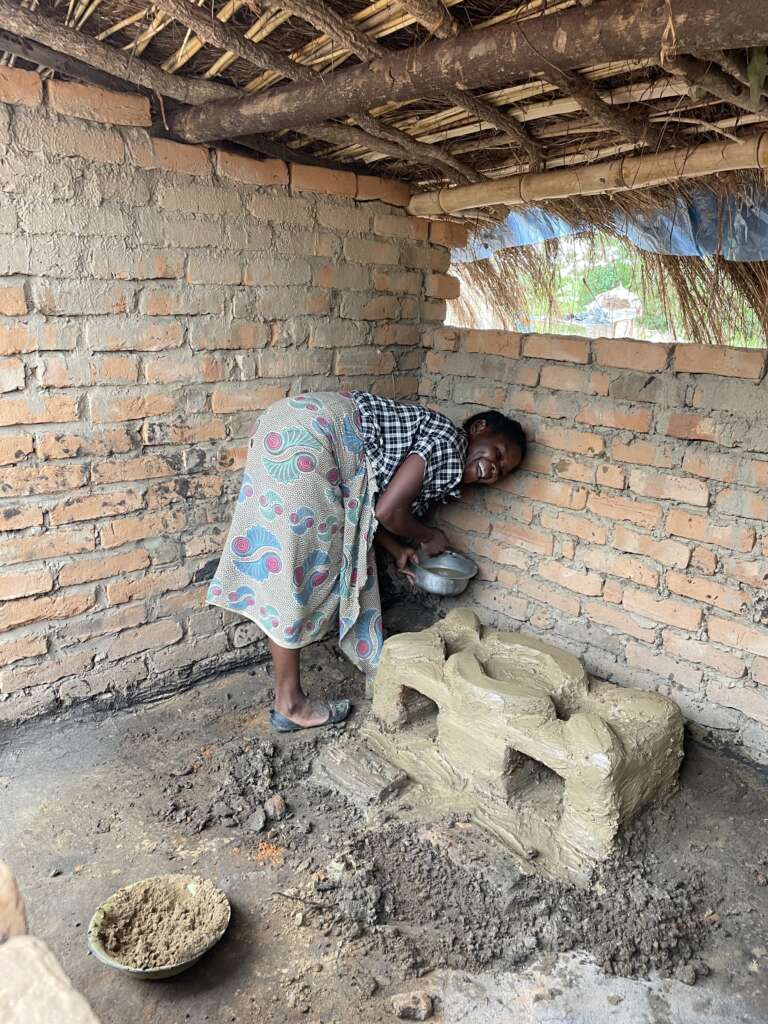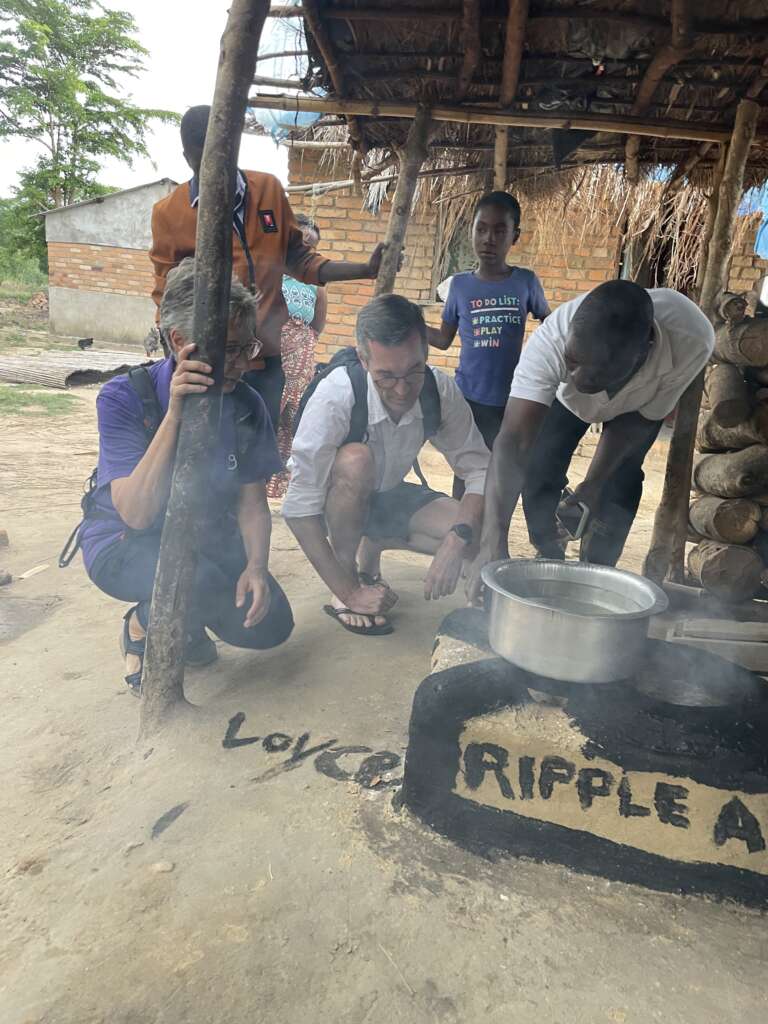The recurring theme of my week has been food. Food poverty, food production and efficient cooking facilities. In the industrialised world we are so used to having wide choices of food (and plenty of it). The easy availability of food, much of it ultra processed, means that the industrialised world is facing widespread health issues relating to obesity and sub-optimal nutrition. In my (many) years as a healthcare professional I have seen the average body size in the UK population increase significantly. I recognise the questionable validity of BMI (body mass index) as an indicator of health, and do not support the very simplistic thinking which can lead to unnecessary interventions in pregnancy and birth. However, issues such as type 2 diabetes, cardiovascular disease and some cancers are strongly associated with our diet. The issues of dietary choices and supplements and BMI are things which I am happy to have time to discuss in a nuanced way with my pregnant clients. For anyone interested in the discussion about BMI and pregnancy I recommend Sara Wickham’s book https://www.sarawickham.com/plus-size-pregnancy/. I offer single pregnancy appointments
which many people find helpful when seeking to understand issues like this. In particular this can be useful when interventions (such as induction) are suggested as a “routine” or discussions about place of birth are limited by virtue of a raised BMI and a hospital’s guidelines. Have a look at my “services” menu https://yourmidwife.org.uk/
Here in Malawi there is very little processed food available. For many people there is little food at all. I have been fortunate to be staying at Mwaya where the team produce wonderful meals made from fresh ingredients every day. It means that we are almost exclusively eating seasonal fruit and vegetables with locally grown rice or potatoes, with protein coming from local sourced legumes, eggs, fish and chicken. I take food with me when I am out working. There are certainly no meal deals available here! I’ve found a little cafe near the hospital where I can buy a plate of rice with a little “relish” (shredded green leafy vegetables or chopped tomatoes) and eat with the few local people who are privileged to be able to afford the luxury of a meal cooked for them.
Most people are subsistence farmers, struggling to produce enough food and selling any excess produce to buy things they do not grow themselves. Food production is mainly done by women, including preparation of the land, tending crops, harvesting and cooking. The lakeside communities have the opportunity to catch fish, but the intensity of fishing (often catching immature fish in mosquito nets) has adversely affected fish stocks in recent years https://rippleafrica.org/project/fish-conservation-in-malawi-africa/ Much of the land around the villages is of poor quality, having been overused for many years. Planning for the extremes of weather here as well as the difficulty of storing food, means that food insecurity is a major national problem.
Three times this week I have had women explain that they cannot stay at the hospital with their sick or premature baby because they have no food. With no alternative to breast feeding, a woman who has no food leads directly to a feeding crisis for the baby. The hospitals here do not provide food for patients and so a woman who is away from her home can face extreme challenges. Women are discharged home with sick and very premature babies because the balance of risk and benefits means that it is worth the risks for the possibility of the woman getting at least some food. This is her baby’s only chance.
There is no welfare state provision. There are no food banks. The mango trees around the hospital are the only available source of food. The moral dilemma this creates for me is huge. This isn’t about one patient in an extreme situation, this is commonplace. The desire to give money or food to people is strong and immediate, but all it does is shift the problem for that person for a single day. This is the reality of working here, and it doesn’t feel good.
My host charity, Ripple Africa, are committed to projects which enable people to improve their lives and increase food security. Their catch phrase of “providing a hand up, not a hand out” is one that resonated with me when I was exploring potential volunteering opportunities. Yesterday I spent a day out visiting communities which are benefiting from a hand up. Groups of ten households work together. They are provided with information, advice and support as well as a starter pack of seeds or plants. They are taught principles and simple practices of permaculture to maximise their yields. From that initial help they are able to grow and harvest food, and producing much more than they need. They are supported to plan effective reinvestment, and to then to diversify into additional food production.
Fruit trees are the start point, then vegetables. Once these are established, profit is diverted into buying chicks. The ultimate goal in these groups currently is to buy a pig, who then has multiple piglets. The manure from the animals is utilised as fertiliser, the pigs enjoy any surplus or spoiled crops, so creating a circle of productivity. https://rippleafrica.org/project/chickens-and-vegetables/
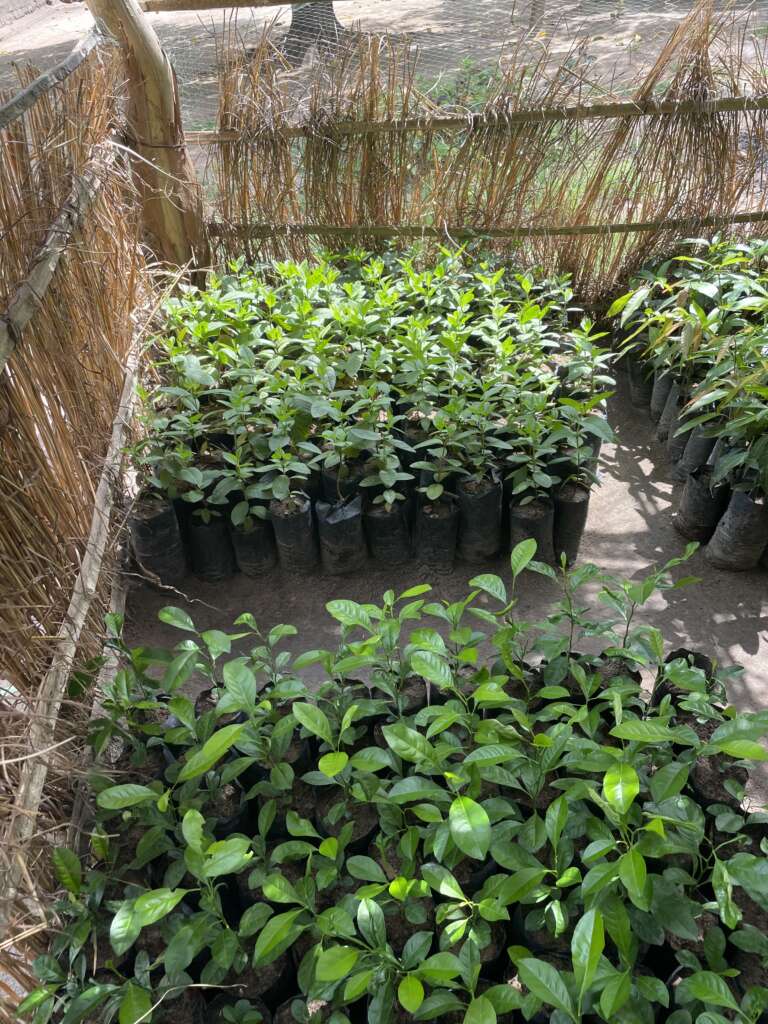
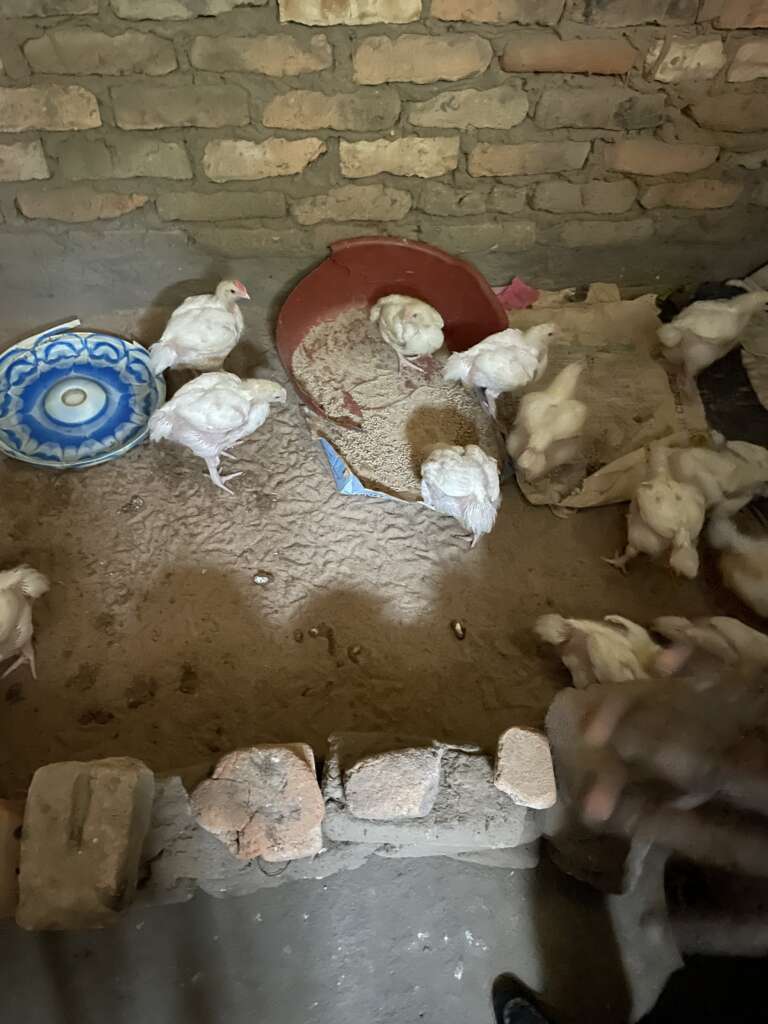
The benefits that projects like this can bring to communities are hard to explain adequately. Perhaps I was unusually naive, but I had never really thought about just how hard it is for many people in the world to access adequate food each day. This is not a war zone or the result of a recent high profile disaster. This is daily life for millions of people.
A linked project is to teach people how to make a fuel efficient wood burning stove. The traditional fire uses wood inefficiently, and is also a hazard. In the hospital we see many children who have fallen onto these fires and sustained severe burns. Ripple Africa have designed a stove which is know as the Changu changu moto stove (the quick quick stove). This uses a third of the wood of a traditional stove and is very much safer. The time saved collecting and carrying wood can be spent growing crops or tending livestock. They are also easy to make, built out of bricks and mortar made from the local soil. They are also quick to make and only require minimal maintenance by the householder every couple of weeks. Together with another volunteer I built one yesterday in less than 15 minutes. The family are delighted. Each family who have a changu changu moto stove wanted us to see and admire theirs.
